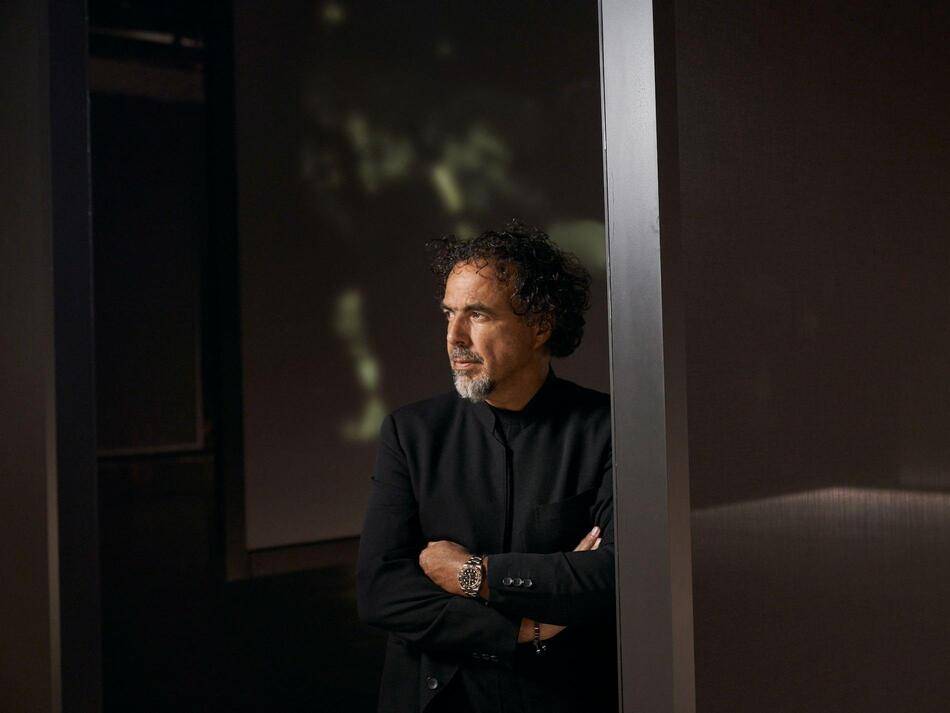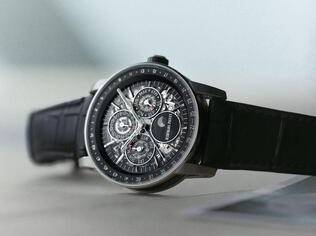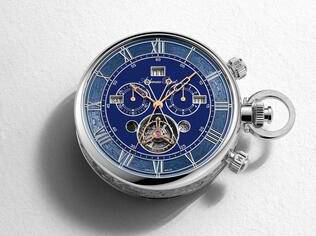Rolex has had an enduring presence in cinema for decades. Over the past few years, the brand has involved itself in the promoting of excellence in filmmaking through its partnership with the Academy of Motion Picture Arts and Sciences. It is a Founding Supporter of the new Academy Museum which will explore the past, present and future of cinema.
Rolex's support extends to its partnership with legendary directors Martin Scorsese, Kathryn Bigelow, James Cameron and Alejandro G. Iñárritu, engaging alongside them to inspire and pass on their expertise to the next generation of filmmakers.

Alejandro G. Iñárritu from Mexico is one such exceptional filmmaking talent. His two Best Director Oscars have earned him a place in movie history next to Hollywood legends John Ford and Joseph L. Mankiewicz.
His debut feature film, the 2000 drama Amores Perros, as well as the second film he directed in his native Spanish language, Biutiful (2010), were nominated for Best Foreign Language Film Oscars. His 2006 film Babel, set in four countries on three continents and shot in four languages, earned seven Academy Award nominations.

In 2014, he directed and co-wrote his first comedy, Birdman. The film received nine Academy Award nominations, and went on to win four Oscars, including three for Iñárritu. In 2016, he won another Academy Award, for The Revenant, becoming only the third director in history to win the Best Director Oscar two years in a row. The film itself was nominated for 12 Academy Awards.
His latest work, CARNE y ARENA (Virtually present, Physically invisible), is a conceptual, virtual reality installation that allows viewers to experience a fragment of the personal journeys undertaken by refugees. It was awarded a special Oscar at the 2017 Governors Awards. Iñárritu's films often feature interconnected stories and a nonlinear narrative, a realm where time is manufactured and plays a paramount role.
Alejandro G. Iñárritu talks about how having two great mentors shaped his career path.
How can a mentor help a young filmmaker?
A mentor is able to say what they think, what they feel. The one who gives you the knowledge, who tells you that cinema is done like this. To succeed you need to do this, to be in theatres, to make it work, but that is just knowledge.
The "other" is something else… someone who helps you see something within yourself, something that you had not seen and who gives you the confidence to carry it out, even if you think you don't know it.
When you are able to express your human experience and translate it into images that reveal to you who you are, that is already poetic. We all have that ability, we just need someone to discover us.

Is it important that new generations of filmmakers understand the difference between knowledge and experience?
Often, new generations think that because knowledge is available on the Internet, and is there waiting for them at any time, that it is inside of them. But that knowledge doesn't do anything if there isn't a complete immersion inside the experience of the person.
Can you learn from a book?
Any experience can be more revealing than a knowledge you learn from a book. Because things can be done in a thousand ways and nobody has the last answer. Nobody.
You can teach more through experiences because experiences are alive. They continue to impact on you.
Did you have a mentor?
I was lucky to have two mentors who – in very different ways and beyond just transmitting knowledge – brought out the best in me. That is what a mentor does. Ludwik Margules, an erudite Polish immigrant with whom I was lucky to study theatre, taught me to always question myself and to embrace uncertainty as part of the process.
He transformed my perception of what it was like to be a director. I had jumped to a conclusion of what directing was like, but I didn't have the real perception, the deep knowledge, the consciousness. He gave me the self-confidence to answer my own questions without fear, and with humility and veneration for the art. I don't think it's possible for a teacher to tell you that.
A teacher gives you knowledge, but wisdom is something else. He filled me with a passion for human drama, to the dramaturgy of being able to represent human nature in the art of filmmaking.
On the other hand, my friend Ernesto Bolio, who knows very little about movies, but knows a lot about life (and life is the stuff that movies are made of). With patience and profound wisdom, he taught me to accept, learn and to transform, overcome the most difficult situations of my life. You don't go anywhere alone.
In a way, he opened my consciousness, he opened the door of light to get to know myself and to get the best out of myself. That's why I would like to be there for someone else, in much the same way these men were there for me.




















